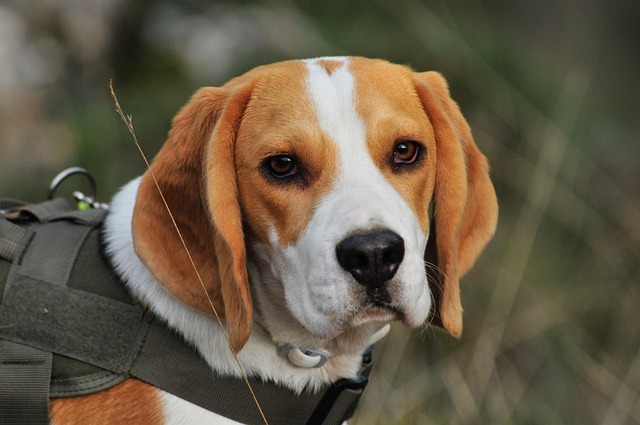
How do i train my dog to be obedient?
Watching your dog dart across the park ignoring your calls isn’t just frustrating—it can put them at risk near busy streets or public spaces.
Beagle puppies love to explore the world with their mouths—chewing and nipping are normal, but it’s key to teach them boundaries early. When your pup nips your hand or ankle, try a simple “ow!” in a high-pitched tone—this mimics how other puppies yelp when play gets too rough, and it helps them understand they’ve hurt you. Immediately follow with a distraction, like a rubber chew toy, so they learn to redirect that biting urge to something appropriate instead of your skin.
Consistency is vital, especially in households where multiple people interact with the puppy. Everyone should use the same “ow!” cue and offer a toy when nipping happens—if one person laughs off a nip while another scolds, the puppy will get confused. For example, if your kid is playing tug-of-war with the puppy and gets nipped, guide them to say “ow!” and hand over a chew toy instead of pulling away (which can make the puppy bite harder out of excitement). This aligns with common Western parenting practices of teaching kids safe pet interaction too.
 Local laws often emphasize responsible pet ownership, and unmanaged biting can lead to issues down the line—if a Beagle puppy grows up not knowing biting is wrong, they might bite a guest or neighbor, which could result in fines or even legal action in some areas. To prevent this, socialize your puppy early by introducing them to different people, dogs, and environments (like parks or pet-friendly stores) while they’re young. Well-socialized puppies are less likely to bite out of fear or anxiety, which keeps everyone safe and keeps you compliant with local regulations.
Local laws often emphasize responsible pet ownership, and unmanaged biting can lead to issues down the line—if a Beagle puppy grows up not knowing biting is wrong, they might bite a guest or neighbor, which could result in fines or even legal action in some areas. To prevent this, socialize your puppy early by introducing them to different people, dogs, and environments (like parks or pet-friendly stores) while they’re young. Well-socialized puppies are less likely to bite out of fear or anxiety, which keeps everyone safe and keeps you compliant with local regulations.
Incorporate positive reinforcement to reward good behavior—when your puppy chooses to chew their toy instead of your shoes, give them a small treat and excited praise. You can also try short training sessions (5-10 minutes a day) focused on “gentle” commands: hold a treat in your closed hand, and only open it when the puppy licks or nuzzles instead of biting. This teaches them that calm behavior gets rewards, while biting doesn’t. Avoid punishment like yelling or tapping their nose—this can make them fearful and more likely to bite defensively.
With patience, most Beagle puppies outgrow excessive biting by 6-8 months old as they learn what’s acceptable. Remember to keep plenty of chew toys around (rotate them to keep things interesting) and give your puppy plenty of exercise—tired puppies are less likely to bite out of boredom. If you’re struggling, reach out to a local dog trainer who specializes in puppies; they can offer personalized tips that fit your area’s lifestyle, whether you live in a small apartment or a house with a yard. By teaching boundaries now, you’ll raise a friendly, well-behaved Beagle that’s a joy to have around.

Watching your dog dart across the park ignoring your calls isn’t just frustrating—it can put them at risk near busy streets or public spaces.

New puppy owners often find themselves rushing to clean up accidents before they set in, and that’s where puppy pad training becomes a game-changer.

If you've noticed your dog's waistline disappearing and your veterinarian has mentioned those few extra pounds, your first instinct might be to simply reduce the amount of food in their bowl.

Training a dog to use a designated spot indoors isn’t as daunting as many new owners fear, but it does take consistency and an understanding of your pet’s needs.

That moment of dread on a walk is all too familiar for many new dog owners. You see another dog approaching down the sidewalk of your neighborhood

If the sight of another dog on your neighborhood walk makes your heart sink as your own dog erupts into a frenzy of barking and lunging, you're not alone.